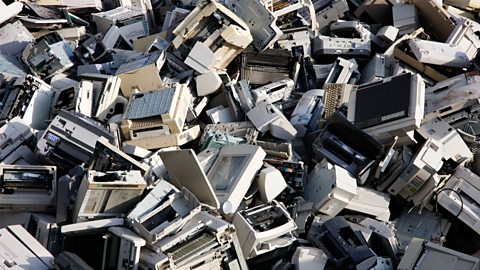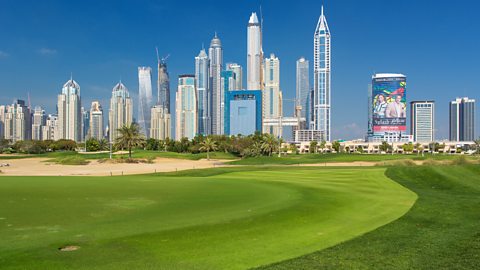Impacts on the environment
We all consume things - food, water, clothes, electronics and energy are consumed by people around the world. We don't always think about where this comes from, but its impact on our environment is huge.
As the population grows, our desire for more consumer goods grows and therefore our footprint also grows. The United Nations (UN) estimates that by 2030 we will need two planet Earths to support us. The buying and selling of goods between countries is known as global interdependence.
Waste
As consumers we generate huge amounts of waste. This waste often ends up in landfill sites or is burnt through incinerators, releasing dangerous greenhouse gases into our atmosphere. Often, our waste ends up in our oceans and waterways, damaging wildlife and habitats.
The issue of e-waste
Ever wondered what happened to your old phone, computer or tablet? This waste is known as e-waste.
Often e-waste contains many metals including copper, gold and palladium. Recycling this material is essential. Not only will recycling reduce our impact on the environment, but also provide people with jobs in other parts of the world as e-waste regularly gets transported to low income countries (LICs) for recycling. However, some of our e-waste can be hazardous. Materials such as mercury, lead and flame retardant chemicals must be carefully and correctly disposed of otherwise they will damage environments and threaten the health of human beings.

Over-fishing
As human beings we consume huge quantities of fish. Our love of fish and chips in the UK has put great strain on fish stocks in our seas and oceans.
Cod fishing
In recent years, cod has rapidly declined in numbers as improvements in fishing technology and illegal fishing vessels have dwindled supplies. The North Sea is an example of a marine ecosystem where supplies of cod have diminishedA rapid decrease in value or amount. by nearly 300 per cent since 1963.
Tourism impacts
Tourism places high demand on our worldвҖҷs water supplies. Water is needed for many things including food preparation, cleaning, swimming pools, water features and maintaining gardens. In hot dry climates, this puts great strain on local supplies and can lead to over-extraction of water from the water tableAn underground surface level (often below the soil and bedrock) which is full of water..
Golf
The game of golf thrives in many hot dry climates, despite an apparent lack of water. In Dubai, over 700 major golf courses can be found, along with many smaller ones. The greens and fairways are in need of constant water which comes at a great cost both financially and environmentally. In addition, hotels and clubhouses are built and sometimes leisure facilities and retail areas may also be created for the golfers.
Some golf courses have badly affected woodland areas and damaged habitats for many species of birds and insects.
